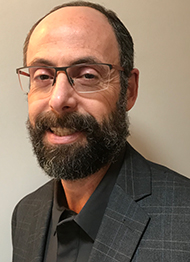Daniel M.T. Fessler
Biography
I am an evolutionary anthropologist whose principal focus is contemporary humans.
Please see my personal website for complete information on research, publications, and teaching, including course evaluations.
Combining anthropological, psychological, and biological theories and methods, I approach a variety of aspects of human behavior, experience, and health from an integrative perspective in which humans are viewed as both the products of complex evolutionary processes and the possessors of acquired cultural idea systems and behavioral patterns.
When colleagues are being polite, they refer to my research interests as “eclectic”. Labels applied to my work include evolutionary psychology, biological anthropology, and evolutionary medicine.
My research, itself an ever-evolving process, currently focuses on a number of domains, including: emotions; disease avoidance; morality; prosociality and cooperation; conflict, aggression, and risk-taking; cultural transmission; food and eating; and sex and reproduction.
Research Interests
Evolutionary psychology, biological anthropology; emotions, cooperation, aggression, social control, risk taking, ingestive and reproductive behaviors, morality, cultural evolution; Indonesia
Publications
Dishakjian, V., Fessler, D.M.T., & Sparks, A.M. (2021) Live fast, die young, and sleep later: Life history strategy and human sleep behavior. Evolution, Medicine, and Public Health 9(1):36-52.
Sparks, A.M., Fessler, D.M.T., & Holbrook. C. (2019). Elevation, an emotion for prosocial contagion, is experienced more strongly by those with greater expectations of the cooperativeness of others. PLoS ONE 14(12): e0226071.
White, C. and Fessler, D.M.T. (2018) An evolutionary account of vigilance in grief. Evolution, Medicine, and Public Health 1(1):34-42.
Kupfer, T.R. and Fessler, D.M.T. (2018) Ectoparasite defence in humans: Relationships to pathogen avoidance, and clinical implications. Philosophical Transactions of the Royal Society B: Biological Sciences 373(1751): 20170207.
Soh, M., Shaner, A., Gelberg, L., Kopelson, K., Stuber, M., Fessler, D., & Warde, C. (2018) Using the Humanism Pocket Tool for patients with challenging behaviors. Annals of Family Medicine 16(5):467.
Fessler, D.M.T., Pisor, A.C., and Holbrook, C. (2017) Political orientation predicts credulity regarding putative hazards. Psychological Science 28(5):651-660.
Gervais, M.M. and Fessler, D.M.T. (2017) On the deep structure of social affect: Attitudes, emotions, sentiments, and the case of “contempt”. Behavioral and Brain Sciences 40:e225.
Clint, E. and Fessler, D.M.T. (2016) Insurmountable heat: The evolution and persistence of defensive hyperthermia. The Quarterly Review of Biology, 91(1)25-46.
Fessler, D.M.T., Barrett, H.C., Kanovsky, M., Stich, S., Holbrook, C., Henrich, J., Bolyanatz, A.H., Gervais, M.M., Gurven, M., Kushnick, G., Pisor, A.C., von Rueden, C., & Laurence, S. (2015) Moral parochialism and contextual contingency across seven societies. Proceedings of the Royal Society B: Biological Sciences.
Fessler, D.M.T., Pisor, A.C., and Navarrete, C.D. (2014) Negatively-biased credulity and the cultural evolution of beliefs. PLOS ONE 9(4), e95167.
Fessler, D.M.T., Tiokhin, L.B., Holbrook, C., Gervais, M.M., and Snyder, J.K. (2014) Foundations of the Crazy Bastard Hypothesis: Nonviolent physical risk-taking enhances conceptualized formidability. Evolution & Human Behavior 35(1):26-33.
Collaborators
Some of the folks with whom I collaborate and/or argue:
- Clark Barrett
- Rob Boyd
- Greg Bryant
- Erica Cartmill
- Jason Clark
- Valerie Curtis
- Diana Fleischman
- Matt Gervais
- Jon Haidt
- Martie Haselton
- Joe Henrich
- Moshe Hoffman
- Colin Holbrook
- Ben Jones
- Rob Kurzban
- Geoff Kushnick
- Cristina Moya
- Carlos D. Navarrete
- Daniel Nettle
- Elizabeth Pillsworth
- Anne Pisor
- Katinka Quintelier
- Paul Rozin
- Joan Silk
- Brooke Scelza
- Jeffrey K. Snyder
- Adam Sparks
- Stephen Stich
- Claire White


